In conversation: Dennis Lowe & Mark Jenkin
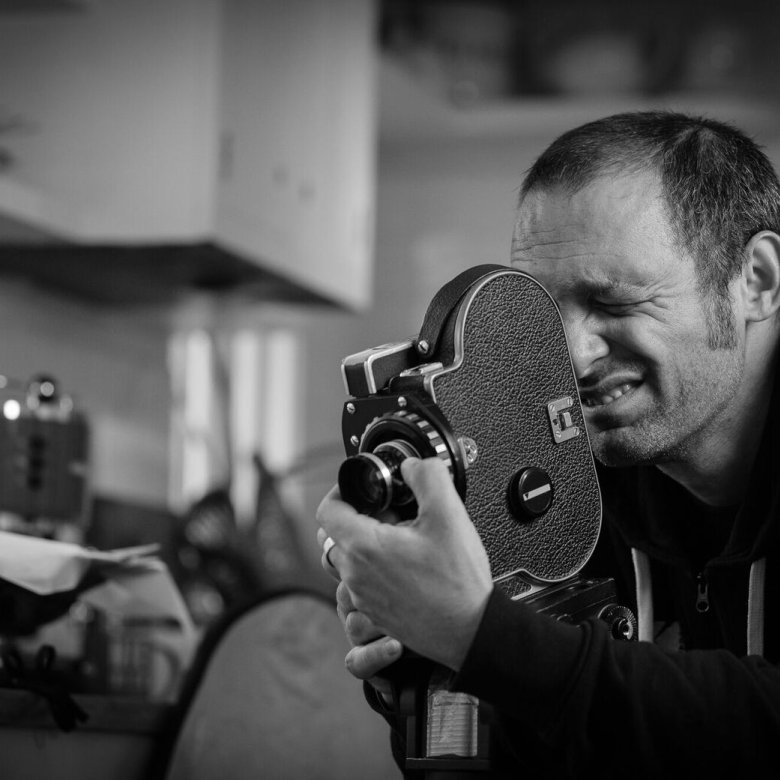
Half a century separates their involvement with film at Falmouth, but former student Dennis Lowe and Distinguished Professor Mark Jenkin are united by a passion for their craft. We join the pair as they discuss classic cameras, creative inspiration and their experiences at the cutting edge of the industry.
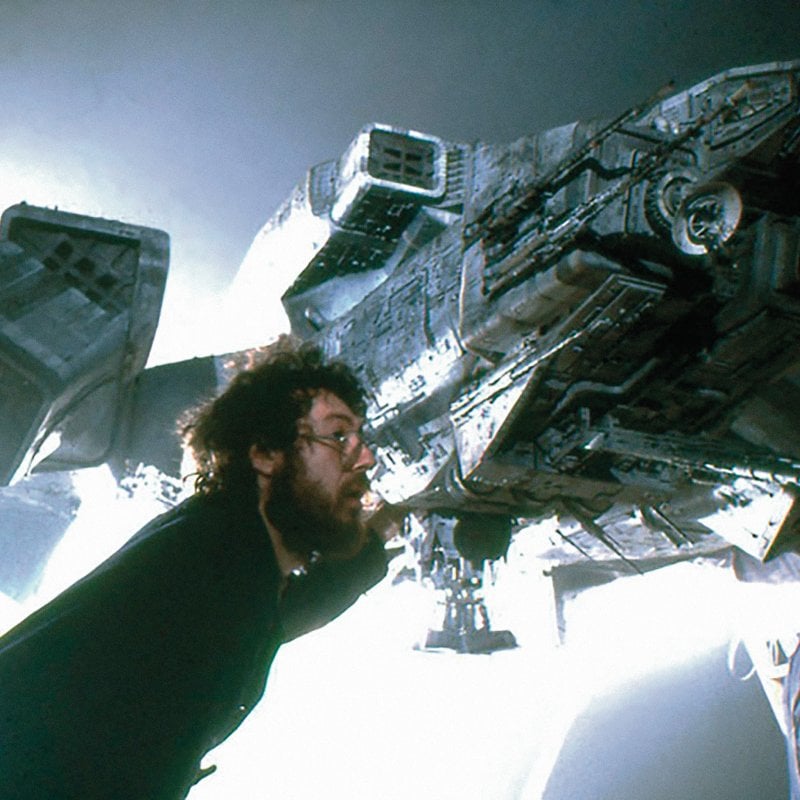
Mark: I’m interested to hear about your time at Falmouth, Dennis, in the late 1960s. What brought you here?
Dennis: I’d seen the place and thought I’d died and gone to heaven. I’d come from Barnsley, where the main smell was sulphur from coal, yet Falmouth was surrounded by palm trees and hippie-like – the English California! I discovered during the first term that I didn’t want to be a sculptor as this was quite constrictive, so I transferred to painting where things seemed more free. I then saw 2001: A Space Odyssey in all its glory at the Casino Cinerama in Old Compton Street, London. I thought film was Mary Poppins; I didn’t realise it could be like that. I went back to Falmouth and said I want to make experimental movies. There was no real set-up for film at Falmouth then, but when I put my idea to the Head of Photography, John Wilkinson, he ran with it. I made a short trial film called Warp, which was basically an excuse for tons of distorted imagery and surrealistic setups. The big bombshell was that the college gave me £500; this was half my dad’s annual salary as a miner, which was then one of the highest-paid jobs in England. The lecturers could see I was enthusiastic. They thought if we throw everything at these students, something will stick. So we had Beaulieu and Bolex cameras to work with and film at Falmouth became established.
I’d seen the place and thought I’d died and gone to heaven. I’d come from Barnsley, where the main smell was sulphur from coal, yet Falmouth was surrounded by palm trees and hippie-like – the English California!
Mark: We’ve gone full circle: I’m solely film-based now and shoot everything on the Bolex. At first, I was accused of being nostalgic and romantic about film. Increasingly, though, students are shooting film. A lot of them were born within the lifespan of the iPhone, so the idea that they have any nostalgia for film is nonsensical. Looking at your archive, Dennis, it’s so obvious that students are at the cutting edge. They’re the ones out there experimenting and, crucially, making mistakes – and learning from their mistakes to push this incredibly young art form forward.
Dennis: I remember filming on a Bolex with Ektachrome. We had a spiral tank to develop 50ft of film; I exposed it to light, a technique called solarisation, and used it in my film Cathedral. Freedom of thought and expression was instilled into us at Falmouth at a very early stage; it was no holds barred, in that respect, which stayed with me for the rest of my life. It was impossible to go into a business-oriented industry like film with that totally open state of mind, but I was able to use some of those ideas later on.
Mark: At the beginning of Cathedral II and Cathedral III you say ‘a film made without the restrictions of a free market’, which I think is really telling. For most students this is the last time they don’t have to think about market forces, where they’re making things purely for themselves. There’s something in the mindset of being a student, whether they recognise it consciously or not, a need to experiment and do something different to get noticed. If everyone was shooting film now, there would maybe be a move to something else. Analogue film is much more of a studio practice, something students can get involved in, and that’s very rewarding. The soul of the art school is still there. I organised a collaboration between the film and photography departments, so students can hand-process black and white Super 8 and 16mm. It’s such a joyous process to get something out of a processing tank that you can put straight onto a projector.
Dennis: It’s interesting to see that happening now, because I thought those techniques had been lost.
Mark: I shot Bait on 12,700ft of black and white negative and hand-processed the whole lot. It took me three months!
Dennis: Wow! That’s dedicated.
Mark: I was at the Berlin Film Festival, talking about 16mm film and being able to work with it on a low budget, and I was asked afterwards why I would hand-process it. But why would I give Kodak all the fun of processing my film in the lab? I love it. It’s not just me; you see it in the students as well – the alchemy.
With the benefit of hindsight, I’d say to students that it’s really important to have fun. The first year should be the time to play and find out what you want to do. It’s about encouraging free thinking and reminding students to take risks.
Dennis: In my time at Falmouth, I was very conscious of how lucky I was. People seemed to work well together. I was determined not to waste a moment and I worked non-stop; I did go to the pub, of course, but I’d often do a full day at the school and then spend all night at home painting.
Mark: With the benefit of hindsight, I’d say to students that it’s really important to have fun. The first year should be the time to play and find out what you want to do. It’s about encouraging free thinking and reminding students to take risks. Glorious failure while trying to experiment and push the form forward is a really noble thing to do. You’ll never have so much freedom or be in a working environment so conducive to creating great work. A lack of resources and a deadline are the greatest gifts that education gives you, as you have to think and use your imagination and ingenuity. But then I was at film school in the 1990s and I know I wouldn’t have listened – the deadline was always unreasonable, unrealistic…
Dennis: I loved being a student and managed to extend that to another three years at the National Film School. The big problem after that was real life! There was a recession and a lot of people were out of work, so I spent three years as a scenic artist painting ghost trains for theme parks. I was lucky enough to get involved with a really good crew on Space 1999 – Brian Johnson, Gerry Anderson – a similar crowd to the art school, where they let you experiment as long as you came up with a solution. That led me onto Alien and Star Wars: The Empire Strikes Back.
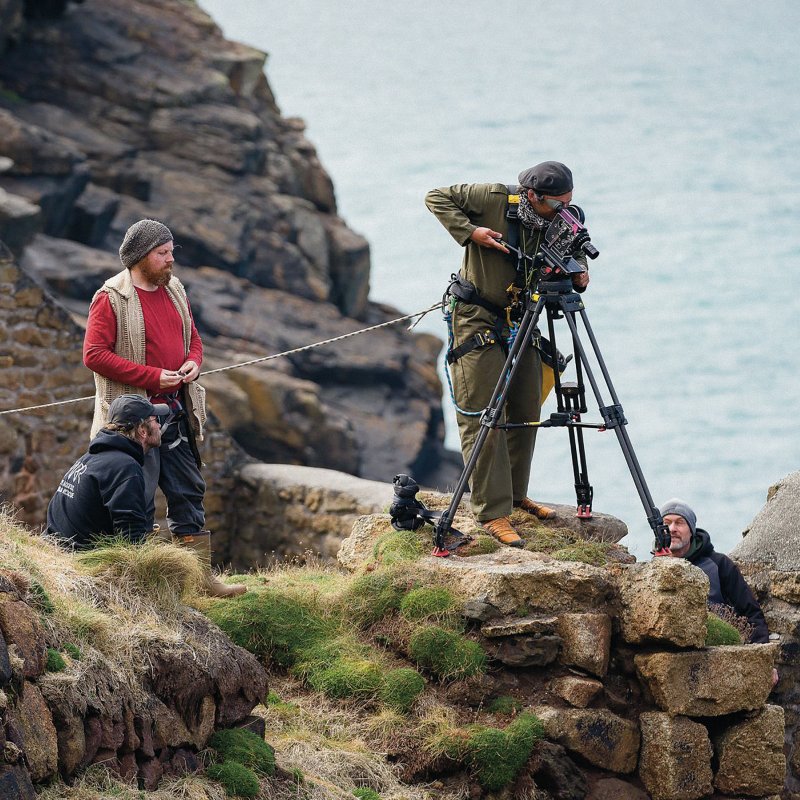
Mark: I know that you formed Arkadon, the first motion control company in England. How did that happen?
Dennis: I got together with a guy who could code and he wrote the software for our motion control system. The NeverEnding Story was our first film. In 1980, the Voyager spaceship had just passed Saturn and Jupiter; we got these amazing photos from NASA showing the detailed surface of the planets and the cloud systems and used these to create a ‘flypast’ for the project ‘Spaceworks’, a travelogue around the Solar System. That led to Legend, Labyrinth and Alien II. Nothing was planned. It was like in life, you fall over a boulder and that’s your next opportunity.
Mark: Yes, it’s the old cliché – the less idea you have about where you’re going, the more interesting the route becomes. Some students are attracted to certain roles, wanting the director’s chair with their name on the back, but they’re not always suited to them. It is difficult to tell where life will take you; perhaps the most important legacy of an arts education is the people you meet and the partnerships you make.
Dennis: Falmouth was very busy. We had so many visiting speakers: painters, musicians and even a mathematics lecturer who had spent a year measuring Chartres Cathedral with a tape measure and discovered that it resonated to different chords! Often, they seemed to bear no relationship to what you were doing, but the endgame was always the idea that the universe is amazing. So many things could open up to you, not just your own little view of life at 18 or 20. It showed you the possibilities.
Mark: One of the great things about Falmouth today is the visiting lecturer programme. We recognise the importance of inviting inspirational speakers and we’ve welcomed some really influential and stimulating people. Students don’t always understand why they should listen, so there’s a certain coercion involved, but I’d say don’t close your mind or take your inspiration from just one source or area or you’ll become derivative. You can’t create anything in a vacuum, but you can combine different influences to create new things. If it’s someone who’s gone out and measured a cathedral, well that can be inspiring and stay with you forever. Maybe you’ll never quite work out why!
More stories
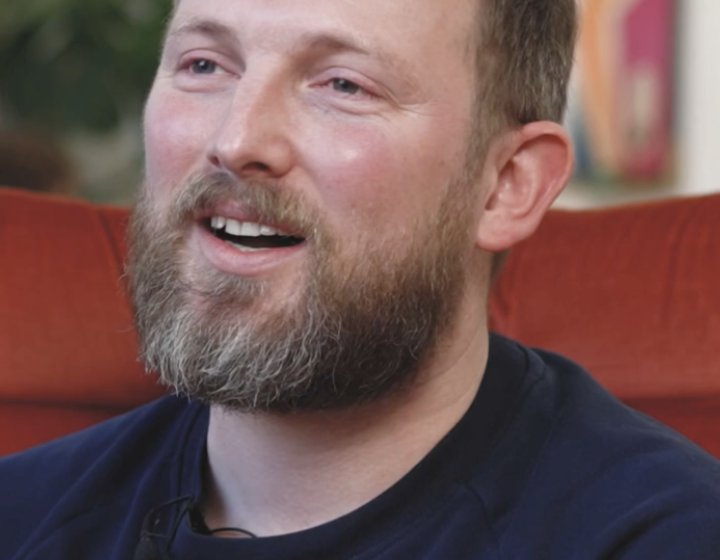
Meet Falmouth-based design studio Kingdom & Sparrow
06 July 2023
Behind the doors of the old School of Art building lives the distinctive design agency and a team of...
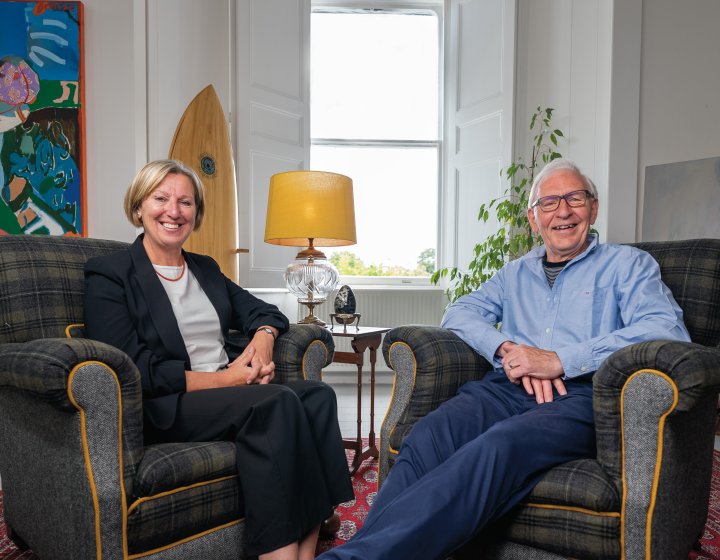
In conversation with Professor Alan Livingston CBE (Part 1)
16 December 2022
Our Vice Chancellor talks to the former University College Falmouth principal about the challenges a...
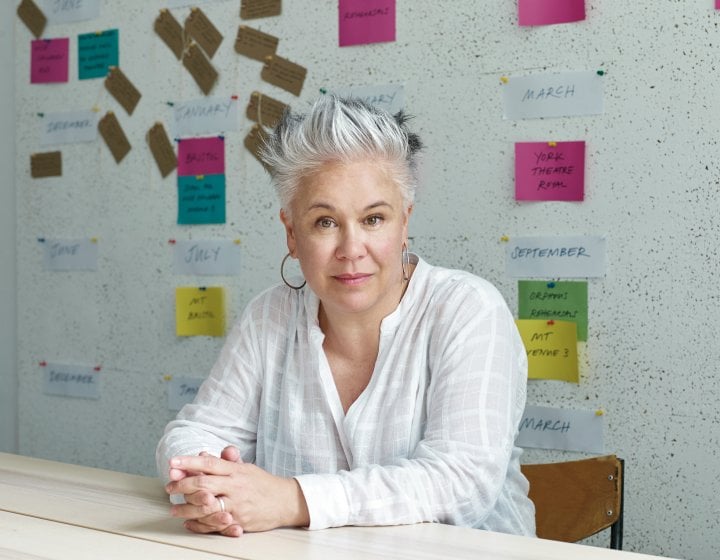
Looking ahead: Friends of Falmouth cast their minds forward
15 December 2022
Emma Rice, Rob Da Bank, Philip Marden and Sir Tim Smit KBE imagine the future of Falmouth University...

Lifelong connections made at Falmouth
15 December 2022
Hear from former students who’ve formed lifelong connections with friends they met at Falmouth.
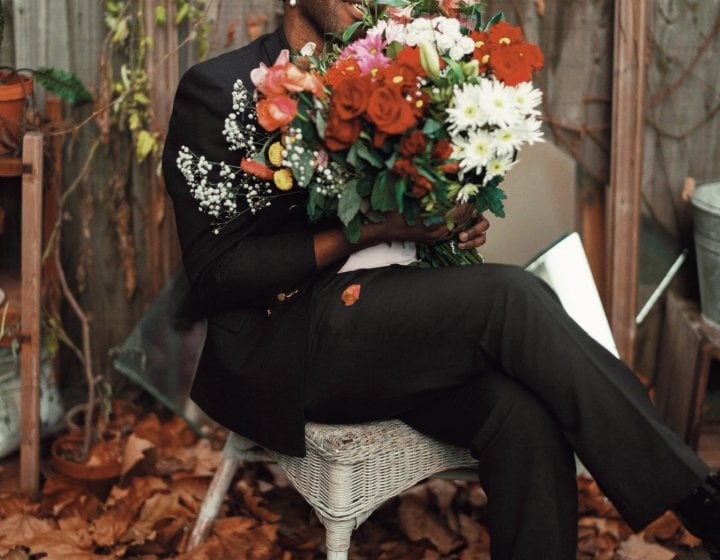
Hear from inspiring alumni
15 December 2022
Meet just a few of our outstanding alumni and discover where it all started.
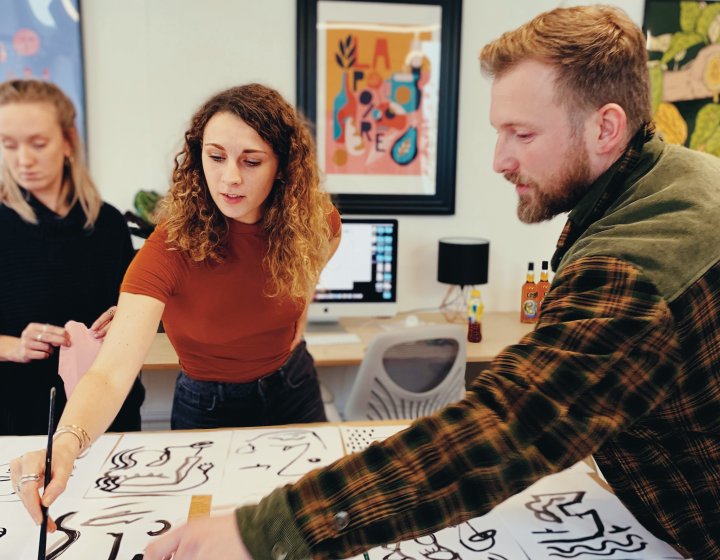
Meet the creative team now based in the original Falmouth School of Art building
15 December 2022
We visit Kingdom & Sparrow, the creative team now based in the building where it all began.
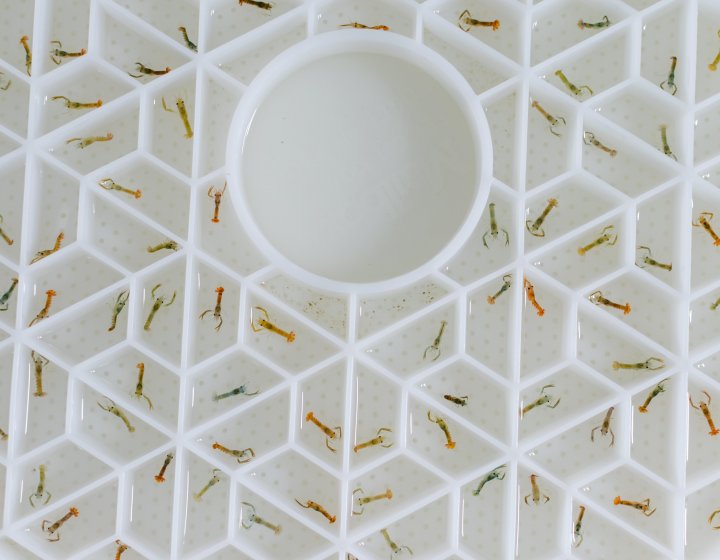
Research at Falmouth: Building on the rich legacy of a creative county
15 December 2022
Professor David Prior, Director of Research, reflects on the incredible evolution of Research & Inno...
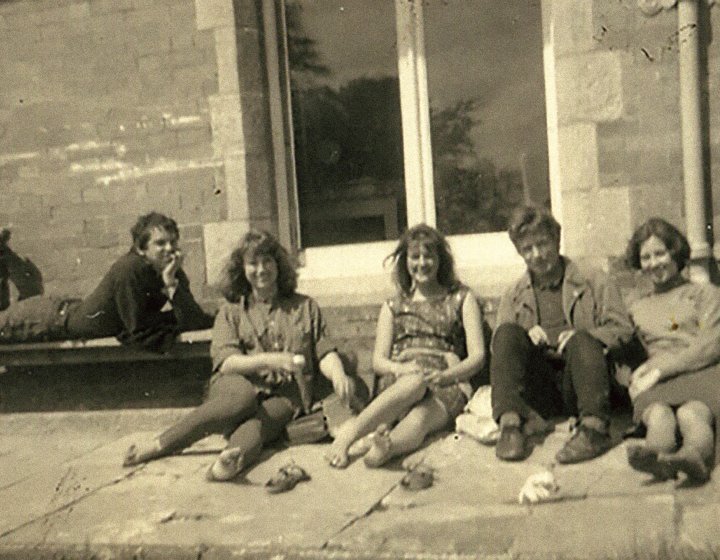
Then and now: Student life
15 December 2022
In 60 years, how has student life changed? From parties to politics, two students past and present d...
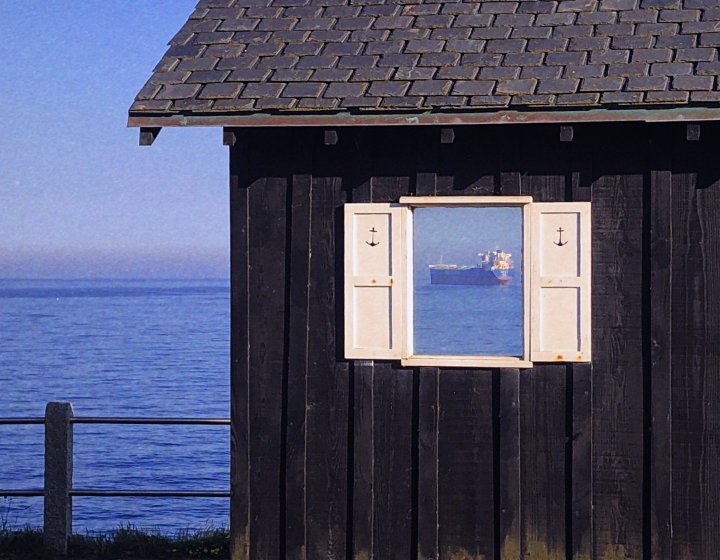
Falmouth alumni photo album
27 April 2022
Explore Falmouth life through the lens of our graduates. Whether you're reminiscing about y...
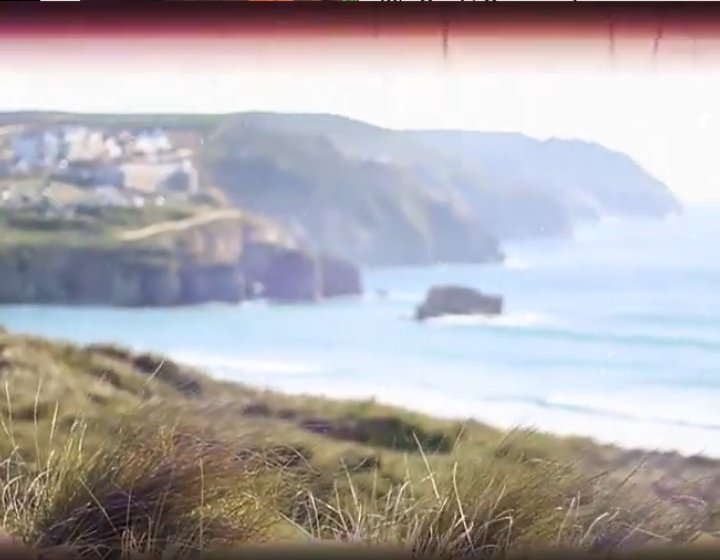
A year to remember: Abii Birkett shares first-year film
27 April 2022
Watch Graphic Design graduate Abii Birkett's nostalgic first-year film.